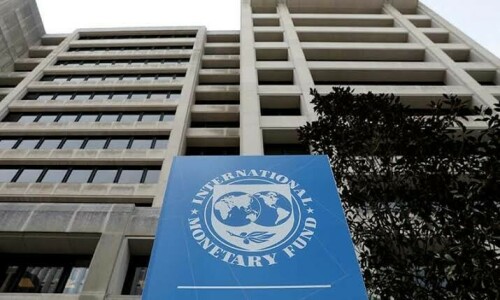AS a recent UN report on terrorist activity has noted, a witches’ brew of extremely dangerous militant actors continues to find sanctuary in Taliban-ruled Afghanistan. Unless these threats are addressed proactively, Pakistan, as well as the greater region, may suffer the fallout. As per the Security Council’s 33rd monitoring report on Al Qaeda and IS, the former terrorist group has established a string of training camps in Afghanistan, including in provinces bordering Pakistan, where TTP suicide bombers receive instruction. Moreover, the document says that Al Qaeda in the Indian Subcontinent was instrumental in the cross-border militant attack orchestrated by the TTP in Chitral last September, with the former providing fighters for the deadly incursion. The UN report also says that the Afghan Taliban are “generally sympathetic” towards the banned TTP, and that the Tehreek-i-Jihad Pakistan, a shadowy group that emerged last year and was involved in numerous bloody attacks inside this country, is reportedly a TTP front formed to provide “plausible deniability” to the Pakistani Taliban. Another finding of concern is the apparent nexus between the Majeed Brigade, a Baloch militant outfit, and the TTP and IS-K.
The UN report substantiates the state’s position that anti-Pakistan militants are finding refuge in Afghanistan, and that the Taliban are not doing enough to address the matter. The document observes that Kabul’s de facto rulers did take some steps, including imprisoning some TTP cadres, and moving others away from the Pakistani border, “to alleviate Pakistani pressure”. But clearly, these moves have not gone far enough in stemming the militant tide. The fact that other militant groups — such as anti-China outfits and the sectarian IS-K — are also active means that Pakistan should work with regional states, including China, Iran and the Central Asian countries, to put pressure on the Kabul regime to address this potentially explosive problem. Bilateral efforts also need to continue between Pakistan and Afghanistan. If left unattended, the militant problem in Afghanistan can again become a multinational security headache. The message from all regional capitals should be: if the Taliban want greater recognition, international cooperation, and foreign investment, they must shut down terrorist sanctuaries. From Pakistan’s perspective, the potential link between Baloch separatists and jihadi groups — highlighted earlier by some observers — would complicate matters in Balochistan, and would require an effective counterterrorism response from the new administration.
Published in Dawn, February 2nd, 2024












































